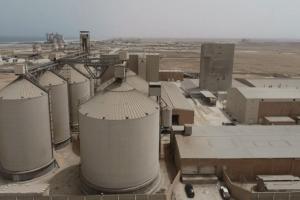
Over the past two decades, Mauritania has achieved significant industrial development, in several areas including in particular that of extractive industries, agro-food, chemicals and plastics, mechanics and metallurgy, materials and construction, in addition to the treatment and transformation of maritime products.
The development of this sector can be seen mainly and clearly in the extractive industries (iron, gold, copper, petroleum, gypsum, etc.), which represent more than 30% of GDP and therefore constitute the backbone of Mauritanian economy.
On the other hand, the other sectors of the formal and informal manufacturing industry had also experienced considerable growth, with the creation, in Nouakchott and Nouadhibou, of around 100 companies and factories specialized in processing, transforming, manufacturing and recycling industries.
These sectors, which constitute the local industry, still face several challenges that prevent their productive development. These challenges could be summarized mainly as follows: the lack of industrial solutions, the high cost of energy, the absence of a medium and long term strategy, the lack of training and means of financing.
In terms of industrial solutions, the sector has recently seen the creation of companies specializing in the field and which focus, among other things, on the following activities: supply of equipment, design, manufacture, maintenance, and technical assistance.
These companies provide solutions by exploiting national expertise to offer solutions in the industrial field in Mauritania, at the lowest possible cost, instead of always bearing the costly expenses of foreign consultants and experts. Certainly, the industrial solutions offered by these companies represent a crucial factor for the development of the industry. Indeed, these solutions are necessary to ensure the proper functioning of industrial units, as well as financial profitability. The high cost of energy is also a major concern for the leaders of the sector, despite the great achievements in this field over the last decade, such as large power plants, high voltage lines, and the diversification of sources.
The other difficulties (absence of a national strategy for industry, lack of academic and professional training, lack of funding) must be taken into account by the State, as priorities necessary to deal with for developing a diversified and sustainable local industry.
These crucial challenges require the establishment of an accelerated strategy, so that the national industry is up to the competition, particularly after the reintegration into ECOWAS and the launch of the activities of the AfCFTA.




